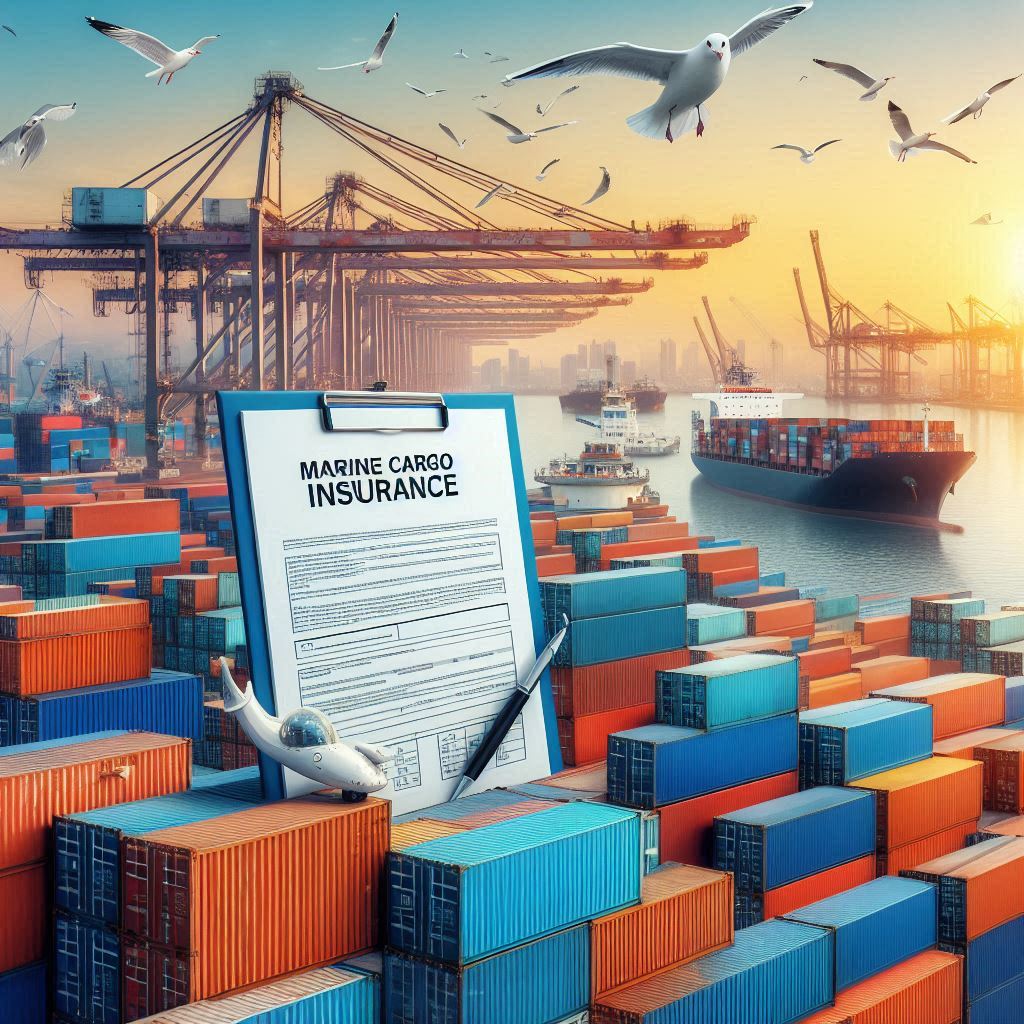Cargo Insurance, when it comes to international shipping, particularly under the ATA Carnet system, ensuring the safety and security of your cargo is paramount. The ATA Carnet, often referred to as the “passport for goods,” simplifies the process of temporarily importing and exporting goods across borders.
However, while it facilitates seamless customs procedures, it doesn’t cover the financial risks associated with cargo damage or loss. This is where cargo insurance steps in. In this blog, we’ll explore why cargo insurance is essential when shipping under an ATA Carnet.
Understanding the ATA Carnet System
Before diving into the insurance aspect, let’s briefly review what an ATA Carnet is. This international customs document allows for the temporary importation of goods without paying customs duties and taxes. It’s used for various purposes, such as exhibitions, trade shows, professional equipment, and commercial samples. The Carnet simplifies the process for temporary imports, ensuring smoother customs clearance and reducing administrative burdens.
Subscribe to the Ex-works24/7 newsletter
Why Cargo Insurance Matters
1. Coverage Beyond the Carnet: While the ATA Carnet simplifies customs procedures, it does not provide any coverage for damage, theft, or loss of goods during transit. This is where cargo insurance becomes crucial. It offers financial protection against various risks that could occur while your goods are in transit, whether by land, sea, or air.
2. Peace of Mind: Shipping goods internationally involves numerous risks. From unforeseen weather conditions and accidents to theft or handling errors, the potential for loss or damage is ever-present. Cargo insurance provides peace of mind, knowing that you’re financially protected should the unexpected occur.
3. Mitigating Financial Losses: The cost of shipping goods internationally can be substantial. Without cargo insurance, any loss or damage could result in significant financial setbacks. Insurance helps mitigate these risks by covering repair or replacement costs, ensuring that your business remains financially stable even if something goes wrong.
4. Smooth Claims Process: In the event of a claim, having cargo insurance can facilitate a smoother and more efficient claims process. Insurers are well-versed in handling claims related to international shipping and can offer guidance and support throughout the process, reducing the administrative burden on your end.
5. Enhancing Professionalism: For businesses, especially those involved in high-value or sensitive shipments, having cargo insurance reflects a commitment to professionalism and risk management. It shows clients and partners that you take the protection of goods seriously, which can enhance your reputation and trustworthiness in the industry.
Types of Cargo Insurance
When considering cargo insurance for ATA Carnet shipments, it’s important to understand the different types of coverage available:
1. All-Risk Insurance: Provides the broadest level of coverage, protecting against all types of loss or damage, except those specifically excluded by the policy.
2. Named Perils Insurance: Covers only the risks specifically listed in the policy, such as theft, fire, or collision. It’s generally less expensive but offers more limited protection.
3. War Risk Insurance: This covers damage or loss caused by acts of war or terrorism, which are typically excluded from standard policies.
4. Natural Disaster Insurance: Offers protection against damage resulting from natural disasters like earthquakes or floods, which might not be covered under standard policies.
How to Choose the Right Coverage
Selecting the appropriate cargo insurance requires careful consideration of several factors:
1. Value of Goods: Assess the value of the goods you’re shipping. Higher-value shipments may require more comprehensive coverage.
2. Nature of the Cargo: Consider the nature and fragility of the goods. Delicate or high-risk items may need specialized coverage.
3. Destination Risks: Evaluate the risks associated with the destination country or region. Some areas may be more prone to certain types of risks, influencing the type of coverage you need.
4. Policy Terms and Conditions: Review the terms and conditions of the insurance policy thoroughly. Ensure it covers all potential risks and that you understand the claims process.
Conclusion: While the ATA Carnet simplifies the customs process for temporary international shipments, it does not protect against the financial consequences of cargo damage or loss. Cargo insurance fills this critical gap, offering financial security and peace of mind. By investing in the right insurance coverage, you safeguard your business against unforeseen risks, ensuring that your international shipping experience remains smooth and secure.
Whether you’re a seasoned exporter or new to international shipping, understanding and leveraging cargo insurance is a vital component of a comprehensive risk management strategy. Don’t leave the safety of your goods to chance—make sure you’re adequately covered before your next ATA Carnet shipment.
Frequently
Asked Questions
Cargo insurance protects goods against loss or damage during transit. For ATA Carnet users, it’s crucial because the Carnet facilitates temporary importation without duties, but it does not cover losses. Insurance helps mitigate financial risks associated with potential accidents or mishaps.
Cargo insurance typically covers risks such as theft, damage from handling, accidents, natural disasters, and other unforeseen events during transportation. The specific coverage can vary by policy, so it's essential to review terms carefully
While not a requirement for obtaining an ATA Carnet, having cargo insurance can streamline the process by providing peace of mind. If a loss occurs, the insured can file a claim, which can help facilitate the return of goods or compensation, making it easier to manage customs responsibilities.
Consider factors such as the value of the goods, the duration of travel, the mode of transport, and any specific risks associated with the shipment. Additionally, evaluate different insurers and policies to find one that offers comprehensive coverage tailored to your needs.
Without cargo insurance, you risk bearing the full financial loss if goods are damaged or lost during transit. This can lead to significant unexpected costs, particularly for high-value items, and complicate the process of reclaiming or replacing goods.




